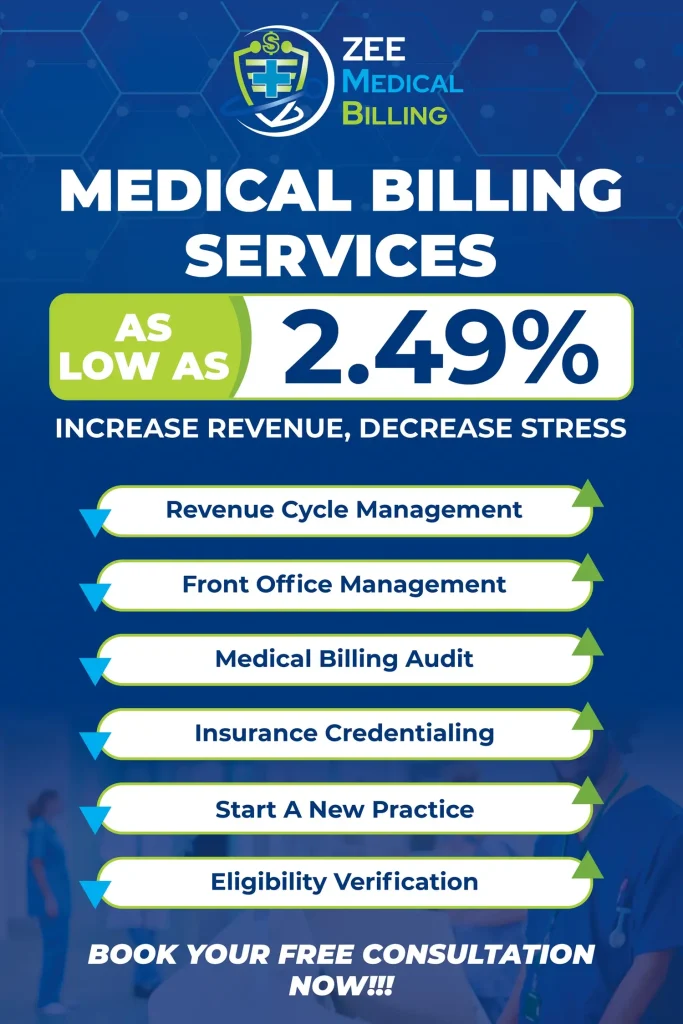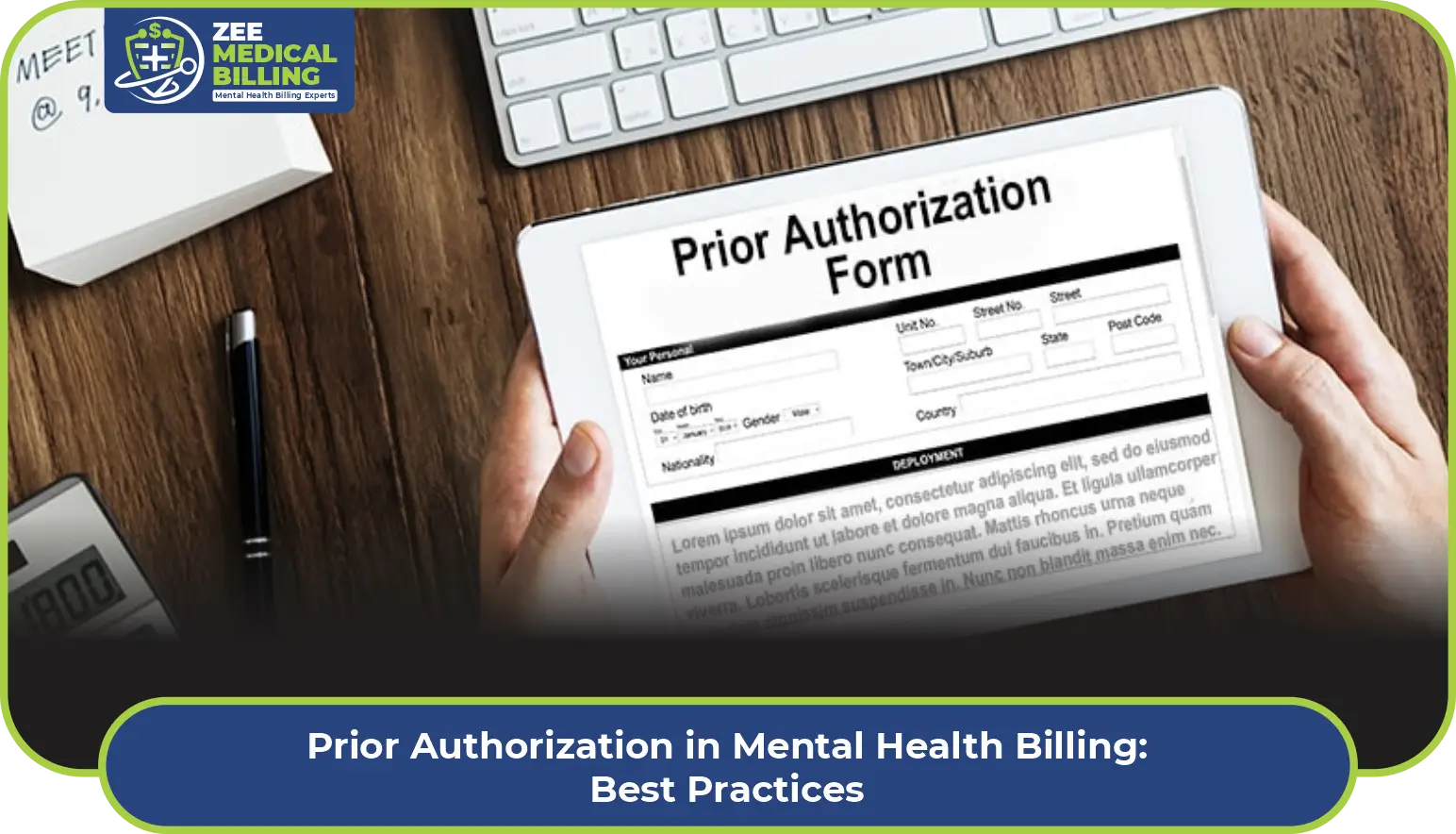Introduction to Behavioral Health Billing
The behavioral health field is experiencing unprecedented growth. With mental health awareness increasing and insurance coverage expanding, more people than ever are seeking therapy, counseling, and psychiatric services. This surge in demand is fantastic news for practitioners, but it also brings a mounting administrative challenge that many aren’t prepared to handle.
Behavioral health billing isn’t like billing for a broken arm or routine physical. It involves navigating complex insurance requirements, understanding session limits, managing prior authorizations, and documenting medical necessity in ways that satisfy scrutinizing payers. If you’ve ever felt overwhelmed by claim denials or spent hours on hold with insurance companies, you’re not alone. That’s precisely why finding the best behavioral health billing company can transform your practice from financially stressed to financially thriving.
What Is Behavioral Health Billing?
Behavioral health billing refers to the specialized process of submitting and managing insurance claims for mental health and substance abuse services. This includes therapy sessions, psychiatric evaluations, psychological testing, counseling, medication management, and crisis intervention services.
What makes it different from general medical billing? For starters, behavioral health services face more stringent documentation requirements. Payers want to see clear evidence of medical necessity, treatment plans, and progress notes that justify continued care. Additionally, many insurance plans impose session limits, require frequent pre-authorizations, and have specific credentialing requirements for mental health providers. Understanding these nuances isn’t optional but it’s essential for getting paid.
Why Your Practice Needs a Specialized Billing Company
Complex Insurance Requirements
Every insurance company has its own rules about what they’ll cover, how they’ll cover it, and what documentation they require. Some plans limit therapy sessions to a specific number per year, while others require periodic treatment plan updates. Keeping track of these varying requirements while trying to provide quality patient care is nearly impossible for most practices.
High Claim Denial Rates
Behavioral health services experience some of the highest denial rates in healthcare, often exceeding 20%. These denials typically stem from insufficient documentation, missing pre-authorizations, or coding errors. Each denied claim represents lost revenue and requires additional administrative time to appeal and what time you could spend with patients.
Time-Consuming Administrative Tasks
Between verifying insurance eligibility, obtaining authorizations, submitting claims, posting payments, and following up on denials, billing can easily consume 15-20 hours per week for a small practice. That’s time taken away from patient care, practice development, and your personal life. Is that really the best use of your expertise?
Key Characteristics of the Best Behavioral Health Billing Company
Specialized Expertise in Mental Health Billing
The best behavioral health billing company doesn’t just dabble in mental health, they specialize in it. They understand the unique CPT codes used for therapy sessions (90832, 90834, 90837), psychiatric evaluations (90791, 90792), and family therapy (90847). They know the documentation requirements that satisfy payers and can navigate the complexities of both individual and group therapy billing.
ZEE Medical Billing brings this specialized expertise to behavioral health practices, with deep knowledge of mental health billing services that goes beyond generic medical billing.
Proven Track Record and References
Anyone can claim to be great at billing. The best behavioral health billing company can prove it with measurable results. Look for companies that can share their average collection rates, days in accounts receivable, and first-pass claim acceptance rates. Don’t hesitate to ask for references from practices similar to yours and actually call those references to hear about their real-world experiences.
Advanced Technology and Security
Modern billing requires modern technology. The best companies utilize sophisticated practice management systems that integrate seamlessly with popular EHR platforms used in behavioral health. They should offer secure patient portals, encrypted data transmission, and robust cybersecurity measures that protect sensitive mental health information.
Transparent Pricing and Reporting
Hidden fees are a major red flag. The best behavioral health billing company provides clear, straightforward pricing are typically a percentage of collections rather than flat fees that don’t align with your success. They should also offer transparent reporting that gives you real-time visibility into your practice’s financial performance, including detailed analytics on collections, denials, and revenue trends.
Essential Questions to Ask Before Choosing a Billing Partner
What Is Your Experience with Behavioral Health?
This question separates the specialists from the generalists. You want a company that has worked extensively with therapists, psychologists, psychiatrists, and counselors. Ask specifically about their experience with your particular specialty addiction treatment, child psychology, or psychiatric medication management, for example.
How Do You Handle Claim Denials?
Denials are inevitable, but how they’re managed makes all the difference. The best companies have systematic denial management processes that include immediate review, root cause analysis, and timely appeals. Ask about their denial rate and what percentage of denied claims they successfully overturn. The behavioral mental health billing services complete guide emphasizes that effective denial management can recover 60-70% of initially denied claims.
What Technology Platforms Do You Use?
Your billing company should use reputable, HIPAA-compliant practice management and billing software. Ask about their EHR integration capabilities, seamless integration eliminates duplicate data entry and reduces errors. Also inquire about their reporting tools and whether you’ll have real-time access to your billing data.
Can You Provide References from Similar Practices?
References are invaluable for understanding what it’s really like to work with a billing company. Ask for contacts from practices similar in size and specialty to yours, and prepare specific questions about responsiveness, accuracy, revenue improvements, and overall satisfaction.
Red Flags to Watch Out For
Lack of Industry-Specific Experience
If a billing company primarily handles orthopedics or cardiology and is just now branching into behavioral health, proceed with caution. Mental health billing has unique challenges that require specialized knowledge. Generalist billing companies often struggle with the nuances of behavioral health, leading to higher denial rates and revenue loss.
Hidden Fees and Unclear Contracts
Be wary of pricing structures you don’t fully understand. Some companies advertise low percentage rates but then add fees for specific services, software access, or support. Read contracts carefully and ask questions about any clause that seems vague or confusing.
Poor Communication and Support
Your billing company should be responsive and accessible. If they’re difficult to reach during the sales process, imagine how frustrating it will be when you need urgent help with a billing issue. Look for companies that assign dedicated account managers and offer multiple communication channels.
No Compliance or Security Certifications
Behavioral health records contain highly sensitive information. Your billing partner must take security seriously, with HIPAA compliance certifications, regular security audits, and documented data protection protocols. If a company can’t clearly explain their security measures, keep looking.
How ZEE Medical Billing Stands Out in Behavioral Health
Deep Understanding of Mental Health Services
ZEE Medical Billing specializes in behavioral health billing with a team that understands the unique challenges mental health providers face. They’re familiar with the documentation requirements, authorization processes, and coding nuances that make behavioral health billing distinctly different from other specialties.
Comprehensive Revenue Cycle Management
Rather than just submitting claims, ZEE Medical Billing manages your entire revenue cycle from patient intake through final payment. This includes insurance verification, pre-authorization management, accurate coding, claim submission, payment posting, denial management, and patient billing. Their comprehensive approach ensures nothing falls through the cracks.
State-Specific Expertise
Mental health billing requirements can vary significantly by state. ZEE Medical Billing maintains expertise in state-specific regulations and payer policies, including specialized knowledge in markets like mental health billing services Illinois. This localized expertise helps practices navigate regional insurance landscape complexities and maximize reimbursements.
The Benefits of Outsourcing Behavioral Health Billing
Increased Revenue and Cash Flow
Professional billing services typically increase practice revenue by 15-25% through improved collection rates, reduced denials, and faster claim processing. According to insights from mental health billing services practices cash flow, practices that outsource billing see significant improvements in days in accounts receivable and overall cash flow stability.
More Time for Patient Care
When you’re not bogged down in billing administration, you can see more patients, expand your services, or simply achieve better work-life balance. Outsourcing frees up hours each week that you can redirect toward clinical work or practice growth initiatives.
Reduced Overhead Costs
Maintaining an in-house billing department means salaries, benefits, training costs, software licenses, and office space. Outsourcing typically costs less while delivering better results because specialized billing companies leverage economies of scale and have systems already in place.
Better Compliance and Risk Management
Healthcare regulations constantly evolve, and staying compliant requires ongoing vigilance. Professional billing companies stay current with HIPAA requirements, payer policy changes, and coding updates, reducing your risk of audits, penalties, or claim recoupments.
Common Billing Challenges in Behavioral Health
Pre-Authorization Requirements
Many insurance plans require pre-authorization before covering behavioral health services, and the authorization process can be time-consuming and frustrating. The best behavioral health billing company has established relationships with payers and efficient processes for obtaining and tracking authorizations, ensuring services are covered before they’re provided.
Session Limits and Medical Necessity
Insurance companies often limit the number of therapy sessions they’ll cover and require ongoing documentation of medical necessity. Your billing company should help you understand these limits, track authorized sessions, and ensure documentation supports continued treatment when additional sessions are medically necessary.
Credentialing and Contracting Issues
Getting properly credentialed with insurance networks can take months, and maintaining those credentials requires ongoing attention. Many billing companies offer credentialing services or can guide you through the process, ensuring you’re set up to bill all relevant payers in your area.
Technology Features That Matter Most
EHR Integration Capabilities
Seamless integration between your EHR and billing system eliminates duplicate data entry and reduces errors. When clinical documentation flows automatically into billing software, it streamlines workflows and ensures consistency between what’s documented and what’s billed.
Real-Time Eligibility Verification
Nothing’s worse than providing services only to discover the patient’s insurance is inactive or doesn’t cover mental health services. Real-time eligibility verification checks insurance status before appointments, preventing uncompensated care and awkward conversations with patients.
Automated Claim Submission and Tracking
Modern billing platforms can automatically submit claims electronically and track their status in real-time. This automation accelerates reimbursement and allows immediate identification of claims that need attention, rather than waiting weeks to discover a problem.
Comprehensive Reporting Dashboards
You need visibility into your practice’s financial performance. Look for billing companies that provide intuitive dashboards showing key metrics like collections, outstanding claims, denial rates, and revenue by provider or service type. These insights enable data-driven decision-making.
Evaluating Cost vs. Value
Behavioral health billing companies typically charge in one of three ways: a percentage of collections (usually 4-8%), a flat monthly fee, or a hybrid model. While cost matters, the cheapest option rarely delivers the best value. A billing company charging 6% that collects 95% of your potential revenue delivers far better results than one charging 4% but only collecting 80%.
Calculate the potential return on investment by considering not just the fee, but also the revenue increase you’re likely to experience, the time savings for you and your staff, and the reduced risk of compliance issues or audits.
The Importance of HIPAA Compliance and Data Security
Behavioral health records are among the most sensitive in all of healthcare. Your billing partner must maintain strict HIPAA compliance, including secure data storage, encrypted transmissions, appropriate business associate agreements, and regular security training for all staff members.
Ask about their security protocols, disaster recovery plans, and whether they’ve ever experienced a data breach. The best companies undergo regular security audits and maintain certifications like SOC 2 compliance that demonstrate their commitment to protecting patient information.
How to Transition to a New Billing Company
Planning the Implementation Process
Switching billing companies requires careful planning. The best companies assign an implementation team to guide you through the transition, which typically takes 30-60 days. This process includes transferring patient and insurance data, setting up your account in their system, and establishing communication protocols.
Training Your Staff
Your front office staff will need training on any new processes or systems. Choose a billing company that provides comprehensive training and ongoing support to ensure your team understands their role in the billing process, from collecting copays to obtaining necessary documentation.
Monitoring Performance Metrics
Establish baseline metrics before transitioning so you can measure improvement. Track key indicators like collection rates, days in accounts receivable, denial rates, and time spent on billing tasks. Review these metrics regularly with your billing company to ensure they’re delivering promised results.
Making Your Final Decision
After researching options, requesting proposals, checking references, and comparing services, you’ll need to make a decision. Consider all factors together with expertise, technology, pricing, communication, and your gut feeling about the partnership. The best behavioral health billing company isn’t just a vendor; they’re a strategic partner invested in your practice’s success.
Trust is essential. You’re sharing sensitive patient information and trusting this company with your practice’s financial health. Choose a partner whose values align with yours and who demonstrates genuine commitment to behavioral health providers.
Conclusion
Finding the best behavioral health billing company is one of the most important decisions you’ll make for your practice. The right partner brings specialized expertise, advanced technology, and proven processes that transform your revenue cycle from a constant headache into a smooth, profitable operation.
By focusing on companies with behavioral health specialization, transparent pricing, robust technology, and strong communication, you can identify partners who truly understand your needs. ZEE Medical Billing exemplifies these qualities with their dedicated focus on mental health providers and comprehensive approach to revenue cycle management.
Remember that the cheapest option rarely delivers the best value, and the right billing partner more than pays for themselves through increased collections, reduced denials, and time savings. Your patients deserve your full attention, and your practice deserves financial stability, the best behavioral health billing company helps you achieve both.
FAQs
1. How much does the best behavioral health billing company typically charge?
Most reputable behavioral health billing companies charge between 4-8% of collections, with the average around 6%. This percentage-based model aligns the billing company’s success with yours. Be cautious of companies charging significantly less, as they may cut corners on quality, or those charging much more without clear justification for the premium.
2. How long does it take to see improved revenue after switching billing companies?
Most practices begin seeing improvements within 60-90 days of transitioning to a specialized billing company. Initial months involve clearing backlogs and establishing efficient processes, but by the third month, you should notice increased collections, fewer denials, and faster payment cycles. Full optimization typically occurs within six months.
3. Can a billing company help with insurance credentialing?
Many of the best behavioral health billing companies offer credentialing services or can guide you through the process. Credentialing typically takes 90-180 days and involves submitting applications to insurance networks, verifying your credentials, and establishing provider contracts. Some companies include this service, while others charge separately for credentialing assistance.
4. What’s the difference between billing companies that specialize in behavioral health vs. general medical billing?
Behavioral health specialists understand the unique challenges of mental health billing, including complex documentation requirements, pre-authorization processes, session limits, and the specific CPT codes used in therapy and psychiatry. General billing companies often struggle with these nuances, leading to higher denial rates and lost revenue for mental health practices.
5. How does ZEE Medical Billing ensure HIPAA compliance and protect patient information?
ZEE Medical Billing maintains strict HIPAA compliance through encrypted data transmission, secure servers, access controls, regular staff training, and comprehensive business associate agreements. They conduct regular security audits and maintain industry-standard certifications that demonstrate their commitment to protecting sensitive behavioral health information.
Follow Us
- Instagram: @zee_medical_billing
- Facebook: ZeeMedicalBilling
- YouTube: Zee Medical Billing Channel
- Twitter/X: @BillingZee
- LinkedIn: Zee Medical Billing Company


























